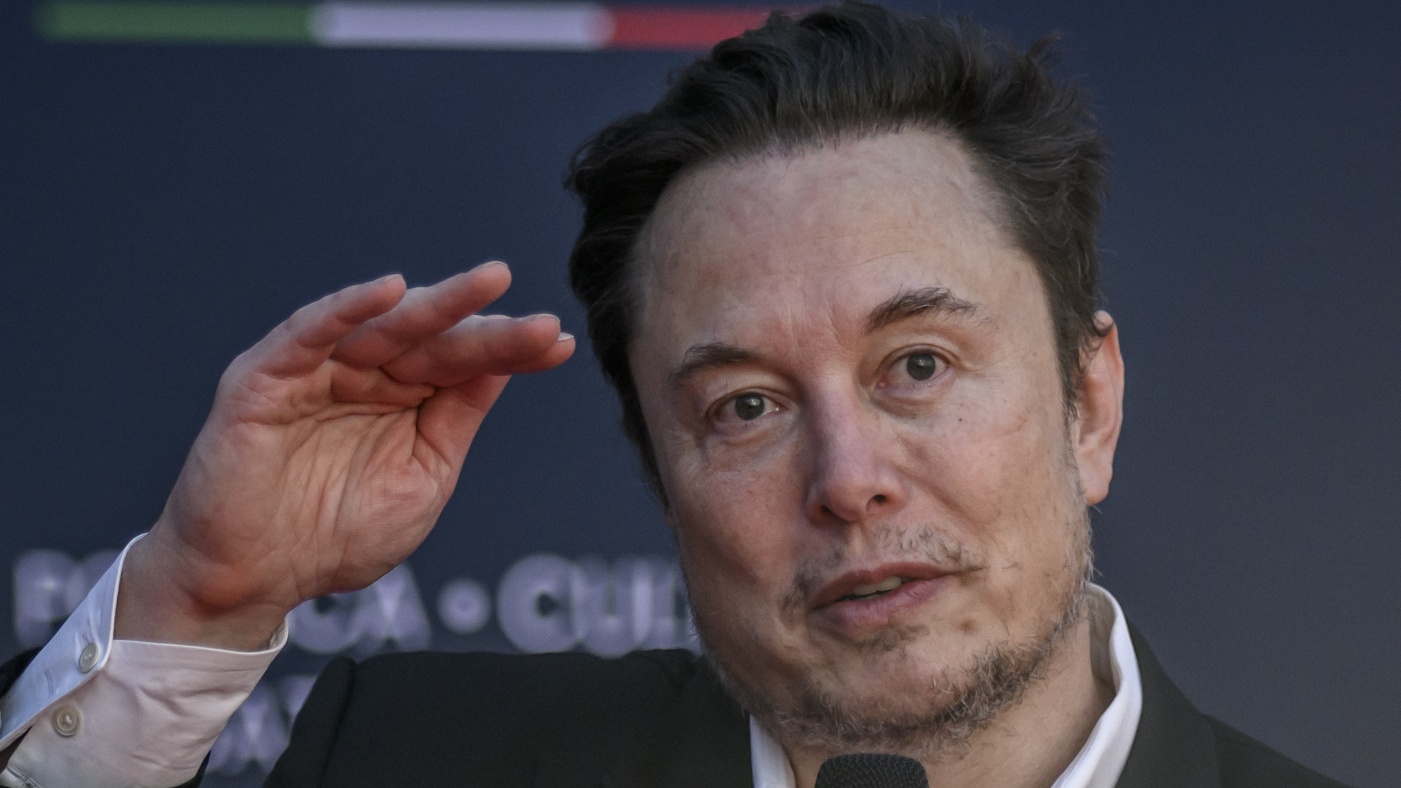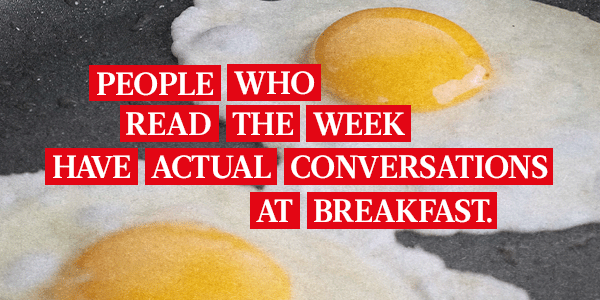Lululemon, Elon Musk and the debate over diversity and inclusion
'Laudable' efforts to increase diversity in the workplace are now being 'weaponised' in the US

A free daily email with the biggest news stories of the day – and the best features from TheWeek.com
You are now subscribed
Your newsletter sign-up was successful
The push to improve diversity and inclusion in US universities and boardrooms is under scrutiny amid recent controversies and growing conservative opposition.
The murder of George Floyd by Minneapolis police in 2020 marked the start of a "racial reckoning" in the United States, said CNN. Corporate America responded "with renewed and public commitment" to diversity, equity and inclusion – often referred to as DEI.
The phrase DEI became something of a corporate "buzzword" as American business leaders sought to display how they were taking action, such as pledging to hire more people of colour, removing racist branding from products, or investing in historically Black colleges, said the news site.

Sign up for The Week's Free Newsletters
From our daily WeekDay news briefing to an award-winning Food & Drink email, get the best of The Week delivered directly to your inbox.
From our daily WeekDay news briefing to an award-winning Food & Drink email, get the best of The Week delivered directly to your inbox.
Such efforts were "largely met with public support" in 2020. But recent events, such as the ousting of Claudine Gay, Harvard's first Black woman president, over plagiarism accusations, have "led to a new firestorm of debate about DEI efforts in corporate America and beyond".
'Another word for racism'
DEI has been criticised as being either "ineffective corporate window dressing" or "counterproductive", said Axios. But in recent years conservative politicians and pundits have made DEI "a target", with new laws in Florida and Texas limiting its use.
Now it appears as if "laudable goals'' such as equity and diversity in the workplace have become "weaponised terms", added the news site. And indeed, Gay's commitment to DEI was "part of the reason" she faced such strong criticism from America's conservative right.
In the wake of Gay's departure from Harvard, billionaire investor Bill Ackman wrote an extensive post on X criticising DEI initiatives, describing the practice as "inherently a racist and illegal movement in its implementation even if it purports to work on behalf of the so-called oppressed".
A free daily email with the biggest news stories of the day – and the best features from TheWeek.com
It is a sentiment echoed by X owner and fellow billionaire Elon Musk, who retweeted Ackman's critique, stating: "DEI is just another word for racism."
Ackman and Musk are not the only two businessmen to voice such opinions. In an interview with Forbes earlier this month, Lululemon founder Chip Wilson expressed a distaste for what he called the "whole diversity and inclusion thing".
He criticised the brand – he is no longer involved in its business operations – for its advertising choices, telling the magazine that "the definition of a brand is that you're not everything to everybody". He added: "You've got to be clear that you don't want certain customers coming in."
'DEI initiatives are resilient'
The US Supreme Court's decision last year to overturn the use of affirmative action in the country's universities has also "drawn attention to corporate diversity efforts", said Axios. The result is that businesses are "trying to avoid any programs that could draw legal scrutiny", with goals around hiring particular demographic groups "increasingly frowned upon".
In the wake of the Supreme Court decision, many of those hired to increase corporate diversity have found that resources and support have now "dropped off sharply", said The Wall Street Journal (WSJ). This has been further dampened by a US economic slowdown, with DEI-related roles "among the first to be eliminated when companies pulled back on hiring broadly".
But while scrutiny around DEI efforts could have a "chilling effect" in some corporations, some consultants say that DEI "is resilient". According to Joelle Emerson, who spoke to the WSJ, many Fortune 500 companies are "planning to continue their diversity and inclusion efforts, but just plan to be quieter about what they're doing".
Some business leaders, such as top investor and entrepreneur Mark Cuban, have already spoken out about their intention to continue diversity efforts.
"Good businesses look where others don't," said Cuban, writing on X. "You may not agree, but I take it as a given that there are people of various races, ethnicities, orientation, etc that are regularly excluded from hiring consideration. By extending our hiring search to include them, we can find people that are more qualified," Cuban said. "The loss of DEI-phobic companies is my gain."
Sorcha Bradley is a writer at The Week and a regular on “The Week Unwrapped” podcast. She worked at The Week magazine for a year and a half before taking up her current role with the digital team, where she mostly covers UK current affairs and politics. Before joining The Week, Sorcha worked at slow-news start-up Tortoise Media. She has also written for Sky News, The Sunday Times, the London Evening Standard and Grazia magazine, among other publications. She has a master’s in newspaper journalism from City, University of London, where she specialised in political journalism.
-
 The Week Unwrapped: Do the Freemasons have too much sway in the police force?
The Week Unwrapped: Do the Freemasons have too much sway in the police force?Podcast Plus, what does the growing popularity of prediction markets mean for the future? And why are UK film and TV workers struggling?
-
 Properties of the week: pretty thatched cottages
Properties of the week: pretty thatched cottagesThe Week Recommends Featuring homes in West Sussex, Dorset and Suffolk
-
 The week’s best photos
The week’s best photosIn Pictures An explosive meal, a carnival of joy, and more
-
 Companies are increasingly AI washing
Companies are increasingly AI washingThe explainer Imaginary technology is taking jobs
-
 Elon Musk’s starry mega-merger
Elon Musk’s starry mega-mergerTalking Point SpaceX founder is promising investors a rocket trip to the future – and a sprawling conglomerate to boot
-
 Trump wants a weaker dollar, but economists aren’t so sure
Trump wants a weaker dollar, but economists aren’t so sureTalking Points A weaker dollar can make imports more expensive but also boost gold
-
 Will SpaceX, OpenAI and Anthropic make 2026 the year of mega tech listings?
Will SpaceX, OpenAI and Anthropic make 2026 the year of mega tech listings?In Depth SpaceX float may come as soon as this year, and would be the largest IPO in history
-
 Ryanair/SpaceX: could Musk really buy the airline?
Ryanair/SpaceX: could Musk really buy the airline?Talking Point Irish budget carrier has become embroiled in unlikely feud with the world’s wealthiest man
-
 How prediction markets have spread to politics
How prediction markets have spread to politicsThe explainer Everything’s a gamble
-
 SiriusXM hopes a new Howard Stern deal can turn its fortunes around
SiriusXM hopes a new Howard Stern deal can turn its fortunes aroundThe Explainer The company has been steadily losing subscribers
-
 How will China’s $1 trillion trade surplus change the world economy?
How will China’s $1 trillion trade surplus change the world economy?Today’s Big Question Europe may impose its own tariffs